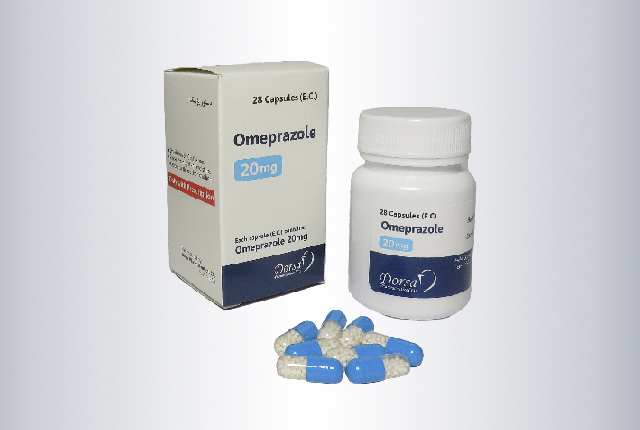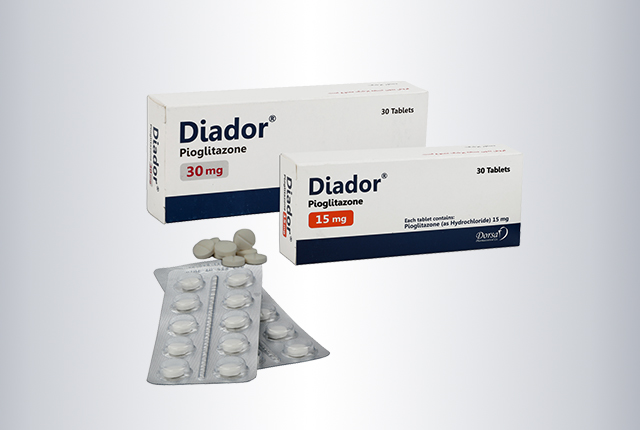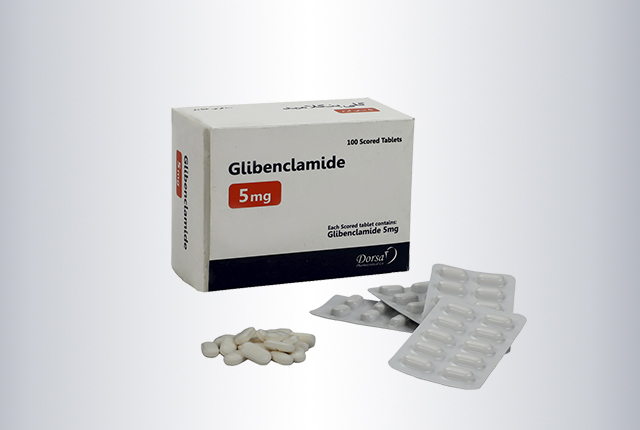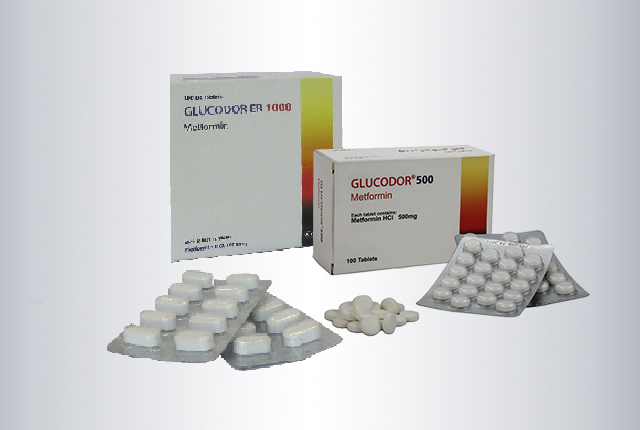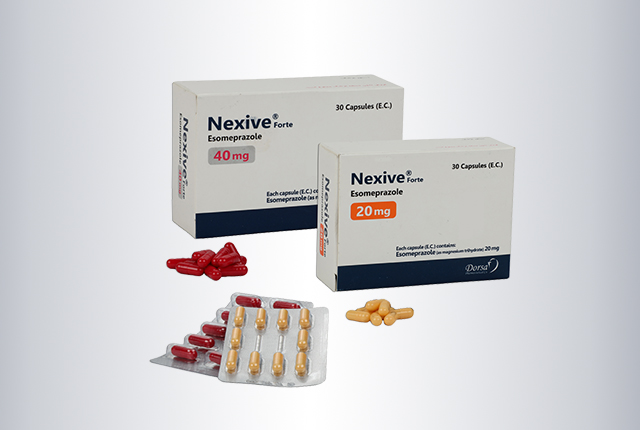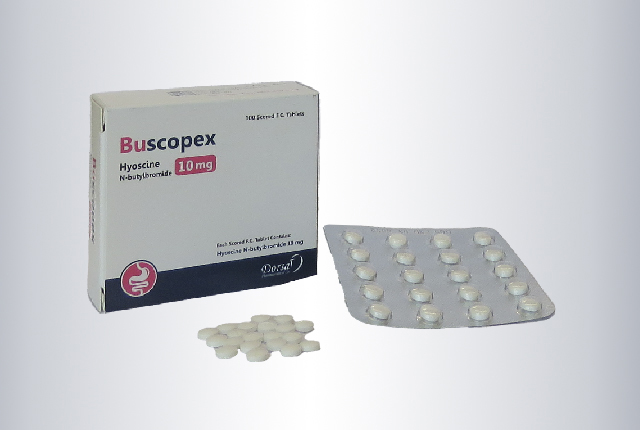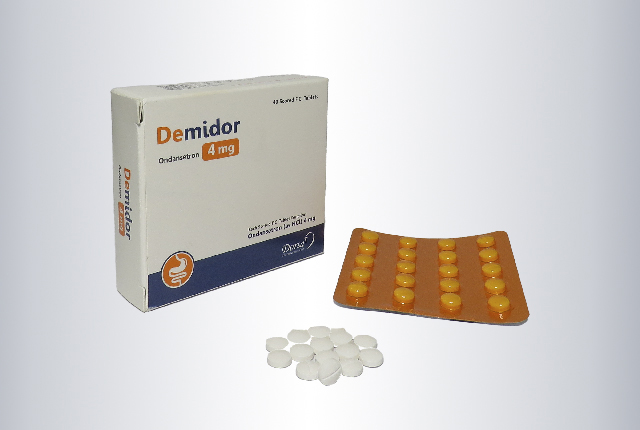Omeprazole
Here is a summary of the information about Omeprazole. If there is anything you do not understand, please ask your doctor or pharmacist to explain it to you.
- Keep out of the reach of children.
- Do not use after the expiry date printed on the label.
- FDA pregnancy category: C
- Rx only.
- Do not throw away any medicines via wastewater or household waste. Ask your pharmacist how to throw away medicines you no longer use.
Gerenal information
Omeprazole is a type of medicine called a proton-pump inhibitor(PPI). It works by decreasing the amount of acid made by the stomach, to give relief of symptoms and allow healing
to take place. This does not stop food being digested in the normal way.
What Omeprazole is used for:
- Reflux Oesophagitis
- Acid-Related Dyspepsia
- Peptic Ulcers
- Zollinger-Ellison Syndrome
Tell your doctor or pharmacist before using Omeprazole if :
- You have any allergies to any medicine containing a proton-pump inhibitor ingredients, any other medicines, foods, dyes or preservatives.
- You have any other medical conditions. Tell your doctor if you have been diagnosed with osteoporosis (brittle bone disease).
Know all the medicines you take. Keep a list of them with you to show your doctor and pharmacist.
Who should not take Omeprazole:
- If you are allergic to omeprazole or any of the other ingredients of Omeprazole tcapsules.
- If you are allergic to medicines containing other proton pump inhibitors (e.g. pantoprazole, lansoprazole, rabeprazole, esomeprazole).
- If you are taking a medicine containing nelfinavir (used for HIV infection).
How to take your Omeprazole :
- Swallow Omeprazole capsules whole with a glass of water.
- Take Omeprazole at about the same time each day, preferably in the morning. Keeping a regular time for taking Omeprazole will help to remind you to take it. In most patients, Omeprazole relieves symptoms rapidly and healing is usually complete within 4 weeks.
- If you are taking Omeprazole with antibiotics, it is possible that the antibiotics may not kill Helicobacter pylori. You may need treatment with further antibiotics.
- Tell your doctor if your symptoms return.
- It does not matter whether you take Omeprazole with food or on an empty stomach.
What to do if you forget to take a dose :
If you forget to take a dose, take it as soon as you remember, and then go back to taking it as you would normally. If it is almost time for your next dose, skip the dose you missed and take your next dose when you are meant to.
Do not take a double dose to make up for the dose that you missed.
While taking your medicine :
- You must use Omeprazole exactly as your doctor has prescribed.
- Tell all doctors, dentists and pharmacists who are treating you that you are taking Omeprazole.
- Tell your doctor if you become pregnant while you are taking Omeprazole.
Omeprazole is not likely to affect your ability to drive or use any tools or machines. Side effects such as dizziness and visual disturbances may occur. If affected, you should not drive or operate machinery.
Call your doctor right away if you have:
- Sudden wheezing, swelling of your lips, tongue and throat or body, rash, fainting or difficulties in swallowing (severe allergic reaction).
- Reddening of the skin with blisters or peeling. There may also be severe blisters and bleeding in the lips, eyes, mouth, nose and genitals. This could be ‘Stevens-Johnson syndrome’ or ‘toxic epidermal necrolysis’.
- Widespread rash, high body temperature and enlarged lymph nodes (DRESS syndrome or drug hypersensitivity syndrome).
- A red, scaly widespread rash with bumps under the skin and blisters accompanied by fever. The symptoms usually appear at the initiation of treatment (acute generalized exanthematous pustulosis).
- Yellow skin, dark urine and tiredn
What to do if you take too much capsules :
Telephone your doctor or the National Poisons and Hazardous Chemicals Information Centre
or go to Accident & Emergency at your nearest hospital immediately if you think that you or anyone else may have taken too much Omeprazole. Even if there are no signs of discomfort or
poisoning.
Side effects :
Like all medicines, this medicine can cause side effects, although not everybody gets them.
Common side effects:headache, diarrhoea, stomach pain, constipation, wind (flatulence), feeling sick (nausea) or being sick (vomiting), benign polyps in the stomach.
Uncommon side effects: swelling of the feet and ankles, disturbed sleep (insomnia), dizziness, tingling feelings such as “pins and needles”,feeling sleepy, Spinning feeling (vertigo), Changes in blood tests that check how the liver is working, skin rash, lumpy rash (hives) and itchy skin, generally feeling unwell and lacking energy, fractures of the hip, wrist or spine.
Reporting of side effects:
If you get any side effects, talk to your doctor, pharmacist or nurse. This includes any possible side effects not listed here.
You can also report side effects directly via the Yellow Card Scheme at: www.dorsapharma.com/ (ADR form)
By reporting side effects, you can help provide more information on the safety of this medicine.
Product specification
| Generic name | Omeprazole |
| Dosage form | 20 mg blue-tranparent E.C capsules |
| Category | Alimentary Tract & Metabolism (PPI) |
| ATC code | A02BC01 |
| Package | Box of plastic bottle of 28 capsules |
| Active ingredient | Omeprazole |
| Storage | Below 30°C. Protect from light & moisture. |
| Shelf life | 2 years |
